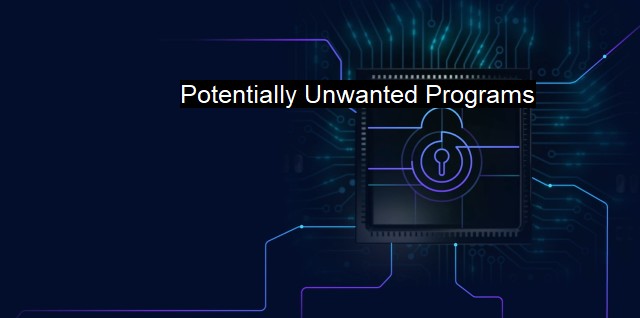What are Potentially Unwanted Programs?
Risky Business: Understanding Potentially Unwanted Programs and Their Threat to Cybersecurity
Potentially Unwanted Programs, also known as PUPs or PUA (Potentially Unwanted Applications), represent a significant issue in the field of cybersecurity and antivirus. They refer to software that, while not strictly malicious or dangerous like viruses or worms, can cause harm to user's experience, data, or computer system. In many cases, PUPs are software programs that a user inadvertently downloads and installs, without comprehending the consequences fully.These programs can consist of adware, spyware, and junk files that serve no real purpose but take up valuable system resources. They may also include software that acts in a harmful way without the explicit permission of the user, such as changing the default search engine, initiating redirects to specific websites, or displaying unwanted pop-up ads. PUPs can appear in the disguise of useful tools, presenting themselves as legitimate software to entice downloads, often in software bundles where the desired program is packaged with other, unwanted software.
PUPs are harmful because they can invade end-user privacy and potentially compromise the confidentiality, integrity, or availability of information stored on a computer. Although they might not steal data or cause system corruption like conventional malware, they can still be a serious nuisance and cause various performance and privacy issues. they might decrease the speed of operaions by using up system resources or continuously prompt annoying ads, thereby disrupting the user's experience.
While some PUPs are just annoying or inconvenient, others can be harmful. Some have been known to install additional software without user approval, hide from the list of installed programs, trick users into purchasing useless software, or collect personal data without proper disclosure. It's important to remember that while PUP's aren't outright malicious as they don't cause intentional harm like viruses, the harm they do cause should not be overlooked.
Our primary line of defense against PUPs is antivirus software. Conventional antivirus software can detect a vast array of system threats including viruses, worms, ransomware, spyware, and PUPs. This software will regularly scan the system to identify and eliminate potential threats, but they need to be updated regularly to ensure they can protect against the latest kind of attacks.
Regardless, we should remember that not all PUPs are detected and managed by antivirus software. Often, it takes additional, specialized tools to find and eliminate PUPs. This is because some software companies do not classify PUPs as a threat but as a user choice, making it difficult for conventional antivirus programs to handle them.
Users play a crucial role in protecting their systems from PUPs. They must maintain sound browsing habits, verify the source of software downloaded on their system, and keep software and systems updated. When installing new software, it's advisable to always choose the 'custom' or 'advanced' installation process to have control over what features, toolbars, or add-ons are added to the software. Regularly backing up your data is also essential in case of potentially disastrous computer issues caused by PUPs.
While PUPs may not be as detrimental as other cyber threats, they still pose a significant risk to your privacy and security. They often act as gateways for severe attacks on your system if left unchecked. Hence, it's essential to exercise caution while downloading software and ensure your antivirus is up to date. Always scrutinize the programs installed on your system to ensure no unwanted software is slowing down or infringing upon your computer's security.

Potentially Unwanted Programs FAQs
What are potentially unwanted programs (PUPs)?
Potentially unwanted programs or PUPs are software programs that may have been installed on your computer without your knowledge or consent. These programs are often bundled with legitimate software downloads and can cause a variety of issues on your computer.Why are PUPs considered a threat to cybersecurity?
PUPs may track your online activity and collect personal information without your consent. They may also open security vulnerabilities that hackers can exploit to gain access to your device. PUPs may also slow down your computer, display unwanted ads, and redirect your search results to malicious websites.How can I prevent PUPs from infecting my computer?
To prevent PUPs from infecting your computer, you should always download software from reputable sources and read the installation prompts carefully. Make sure to uncheck any boxes that offer to install additional software. Keep your antivirus software up-to-date and perform regular scans to catch and remove any PUPs that may have found their way onto your computer.Can I remove PUPs from my computer?
Yes, you can remove PUPs from your computer. Run a full scan with your antivirus software and follow the instructions to remove any detected PUPs. You can also manually uninstall PUPs through the Control Panel in Windows or through the Applications folder on a Mac.| | A | | | B | | | C | | | D | | | E | | | F | | | G | | | H | | | I | | | J | | | K | | | L | | | M | |
| | N | | | O | | | P | | | Q | | | R | | | S | | | T | | | U | | | V | | | W | | | X | | | Y | | | Z | |
| | 1 | | | 2 | | | 3 | | | 4 | | | 7 | | | 8 | | |||||||